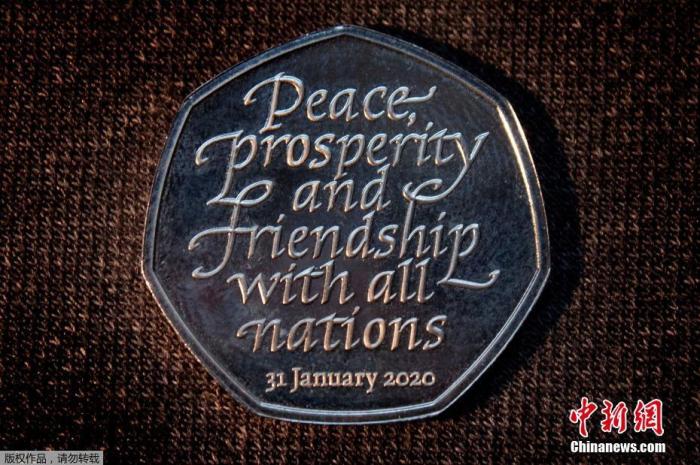China News Service, November 19, according to the British Broadcasting Corporation (BBC) Chinese website, there are only about 6 weeks left before the end of the transitional period for Brexit, but the two sides still have not reached a consensus on issues such as trade agreements.
What is the stubborn crux of the UK and the EU?
What happens if an agreement cannot be reached in the end?
The UK will withdraw from the European Union on January 31, 2020.
According to the regulations, there is an 11-month transition period, and the original regulations are still valid until the end of 2020, during which time negotiations will be initiated on various agreements after Brexit.
The Brexit agreement will influence the future relationship between Britain and European countries. The most critical areas are trade and immigration.
These negotiations will establish the rules for the new British-European relationship.
Data map: On January 29, local time, the European Parliament approved the "Brexit" agreement.
The picture shows the parliamentarians holding high the banner of "Forever Unity" after the voting.
China News Agency issued photos for EU
Why are the negotiations deadlocked?
The various negotiations between the UK and Europe started in March, but they have not progressed smoothly.
Currently, it is still at a standstill.
Throughout the summer, Barnier, the EU’s chief negotiator, has been saying that it seems unlikely that an agreement will be reached, while the United Kingdom has strongly stated that it is not afraid of the breakdown of negotiations.
The main sticking point is still the issue of fishing rights, involving the access rights and government subsidies of EU fishing vessels in British waters.
The European Union generally does not allow the government to provide subsidies for bankrupt companies.
Whether Britain can subsidize its own enterprises after Brexit is a difficult problem in the negotiations.
Another thorny issue involves the border between Northern Ireland and the Republic of Ireland.
After Brexit, there is the border between the United Kingdom and the European Union, and rules and agreements involving import and export trade, customs and cross-border movement of people apply.
However, the British government announced a controversial bill in September, the Internal Market Act, which may overturn the terms of the Brexit agreement signed with the EU earlier, causing the EU to be dissatisfied.
On November 23, the two sides will continue their negotiations in Brussels, and perhaps those stubborn sticking points remain at the negotiating table.
Data map: Britain issued a newly minted 50 pence coin to commemorate Britain's departure from the European Union.
The commemorative coin is engraved with the words "Share peace, prosperity and friendship" and the date "January 31, 2020".
What will happen next?
If a bilateral trade agreement cannot be reached before December 31, the UK will no longer enjoy the privileges of the European single market and customs union.
Specifically, the import and export of goods and services without tariffs will have tariffs and border inspections, and traders, retailers and consumers will all see price increases.
Customs border inspection is likely to cause congestion and delays at border crossings.
Without a deal to leave the European Union, the trade activities of the United Kingdom and the European Union comply with the rules of the World Trade Organization, which means various tariffs and restrictions.
With the economy hit by the new crown epidemic, tariffs are likely to have worse effects.
For some vital economic sectors, emergency measures and temporary regulations may be introduced to prevent chaos and destruction caused by no-deal Brexit.
The report pointed out that the United Kingdom and the European Union are still hopeful about the possibility of reaching some basic agreement.
The key is that political decision makers on both sides must quickly and decisively make the necessary concessions.
After the agreement is negotiated and signed, it needs to be turned into a legal document, translated into various languages, and submitted to parliaments for approval.
All this must be completed before December 31.
If an agreement cannot be reached in the end, then the relationship between the UK and the EU will open a new page. However, the cross-border business of merchants will encounter more administrative red tape and the free flow of bilateral personnel, such as vacation, study abroad, official business, Family visits will no longer exist.

